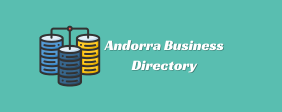Integrating AI into Your AI’s impact on lead generation isn’t one-size-fits-all—different industries are reaping unique benefits.
B2B Tech Integrating AI into Your
AI-driven account-based marketing (ABM) tools help B2B marketers pinpoint high-value targets and automate outreach campaigns with razor-sharp messaging. They can also forecast when a lead might be primed for a product demo or follow-up call.
Healthcare
Healthcare providers use AI to identify prospective patients based on behavior and condition-specific searches. Privacy and compliance are paramount, so AI enables more respectful, compliant personalization.
Real Estate Integrating AI into Your
Chatbots and AI-driven CRMs help real estate talent agencies & casting services business email list agents follow up on listings, schedule showings, and nurture leads based on budget, location, and preferences—often resulting in faster deal cycles.
Deploying AI doesn’t mean replacing everything overnight. Here are practical steps to start:
- Audit Your Data: Ensure your CRM, email platform, and analytics tools are capturing clean, structured data.
- Select the Right Tools: Consider telegram database users material platforms like HubSpot, Salesforce Einstein, or Marketo Engage that offer built-in AI features.
- Run Pilot Projects: Test AI tools on one channel (e.g., chat, email, ad targeting) before scaling.
- Train Your Team: Make sure marketers understand both the potential and limitations of AI insights.
Metrics That Matter in the Age of AI
With AI enhancing lead gen, tracking the right performance metrics is vital:
- Lead Velocity Rate (LVR): Measures how quickly new leads enter your pipeline.
- Lead Quality Score: AI-driven and behavioral-based, not just demographic.
- Engagement Rate: Personalized content should yield better click-through and response rates.
- Time-to-Close: Expect faster deal mobile list cycles with optimized targeting and nurturing.
- Cost per Qualified Lead (CPQL): A more useful metric than just CPL in measuring ROI.
